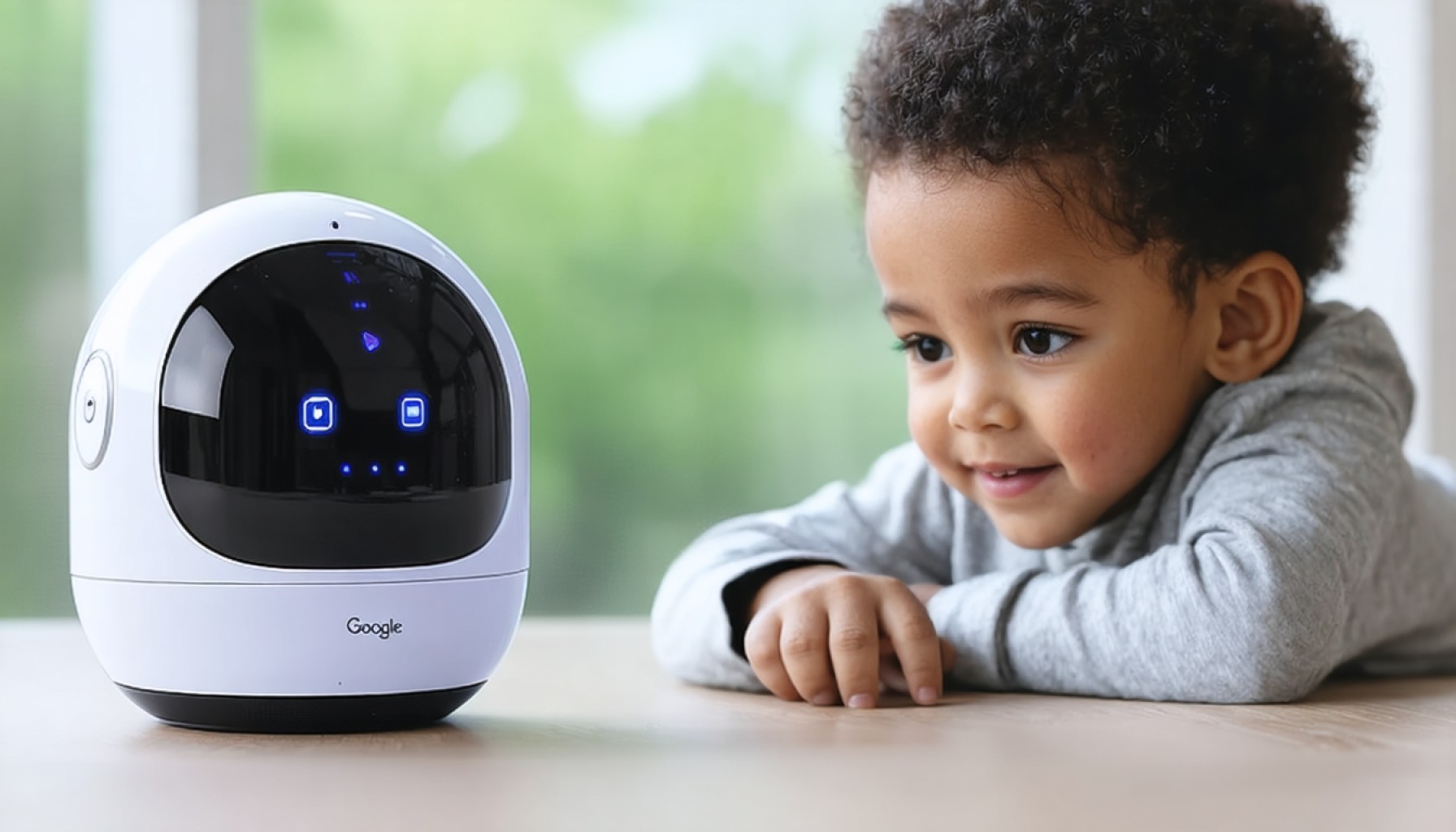- Gemini for Kids is Google’s AI assistant designed specifically for children under 13.
- The initiative responds to concerns about children increasingly relying on digital assistants over parental guidance.
- Google aims to create a safe space for children to learn, ask questions, and tackle homework with AI support.
- Emphasizing safety, Gemini features robust protocols to prevent misinformation and inappropriate responses.
- Parental control features are included to ensure guardians can manage their children’s interactions with the AI.
- Gemini reflects Google’s shift toward more human-like AI interactions, positioned as a successor to previous offerings.
- The project aligns with ethical tech standards and seeks to harmonize AI with childhood development.
Beneath the vibrant skyline of Silicon Valley, Google embarks on a daring new journey: testing Gemini for Kids, an AI assistant tailored specifically for children under 13. This experimental venture emerges amidst growing concerns voiced by education and child welfare advocates about the increasing reliance of children on digital assistants over parental advice. At the helm is Rachel de Souza, the UK’s Children’s Commissioner, who has fervently highlighted this shift—where children turn to chatbots for advice in ways that surpass traditional familial bonds.
Google, instead of severing the digital umbilical cord, envisions a safe space where young minds can ask questions, craft stories, and even tackle homework queries, all under the watchful eye of a “child-friendly” AI. This initiative comes at a crucial juncture as the tech giant transitions its conventional AI offerings to more human-like interactions, marking the ascent of Gemini as the successor.
The inevitable presence of AI in children’s lives raises alarms about misinformation or inappropriate responses. Google’s Gemini, still cloaked in the mystery of its beta phase, promises vigilance with robust safety protocols. The underlying mechanics of Gemini for Kids reveal a tapestry of cautionary text: users are reminded of its non-human nature, and urged to double-check answers, especially those concerning people.
Formative whispers from the tech community, including insights from AssembleDebug, hint at sophisticated parental control features—designed to provide guardians a firm grasp over their children’s digital dialogue. Such controls could well be the ace up Google’s sleeve, setting it apart from less supervised entities like ChatGPT.
As we stand on the brink of an era where children will inevitably navigate AI-aided realities, Google’s initiative shines as a potential beacon of safety and foresight. This bold endeavor not only aligns with ethical technology standards but also paves the way for harmonizing technology with childhood wonder and safety—a delicate dance with the future itself.
Will Google’s Gemini for Kids Revolutionize Child-Technology Interactions?
Overview
Google’s bold step of introducing Gemini for Kids, an AI assistant tailored for children under 13, aims to redefine how young users engage with technology. This venture is inspired by a growing need to create safer digital environments for children, ensuring that they can leverage technology without replacing essential human interactions.
Key Features and Benefits
– Child-Safe Environment: Gemini is designed to offer a “child-friendly” AI experience, emphasizing a responsible approach by banning inappropriate content and providing vetted information. Its architecture includes prompts to remind young users that they are interacting with a non-human entity and should verify information, especially concerning sensitive topics.
– Parental Control and Oversight: Gemini’s sophisticated parental control features allow guardians to monitor and regulate their child’s interactions, ensuring a reliable safety net not widely available in similar AI platforms, such as ChatGPT or other digital assistants.
– Educational Support: By facilitating a safe platform where children can ask questions, create stories, and solve homework problems, Gemini stands out as an educational ally, potentially reducing the dependency on search engines that might lead to exposure to unsuitable information.
Pressing Questions and Answers
How does Gemini for Kids ensure accuracy and appropriateness?
Google utilizes extensive safety protocols and content filtering to minimize misinformation and inappropriate content. The platform encourages double-checking answers, fostering an environment of cautious exploration rather than blind reliance on AI responses.
What differentiates Gemini for Kids from other AI assistants like ChatGPT?
As highlighted by tech experts at AssembleDebug, Gemini’s unique parental control features grant parents more control over their children’s digital engagements. This feature, absent in many competing products, is integral to creating a safe interaction landscape.
What are the ethical considerations around introducing AI to children?
Ethical technology standards are central to Gemini’s development, with an emphasis on reinforcing technology’s role as a tool rather than a substitute for human connection. Rachael de Souza, the UK’s Children’s Commissioner, stresses the importance of maintaining familial bonds in the digital age, a consideration that Gemini carefully integrates into its framework.
Controversies and Limitations
– Misinformation Risks: Despite rigorous efforts, the risk of misinformation remains prevalent. Google advises users to stay vigilant and encourages educators and parents to actively participate in guiding children.
– Dependence on Technology: Concerns linger about children becoming overly dependent on technology, potentially stifling the growth of interpersonal skills. There is an ongoing debate among child welfare advocates regarding the balance between technology and parenting.
Market Trends and Predictions
The market for child-targeted AI assistants is poised for growth, with safety and educational capabilities driving demand. As technology evolves, Google’s initiative may inspire industry-wide adoption of similar child-centric AI solutions, setting new standards for educational technology.
Actionable Recommendations
– Engage with Your Child: Actively participate in how your child uses AI tools. Use parental controls to understand their interactions and respond to their queries or curiosities, reinforcing the human element in their learning.
– Stay Informed: Keep abreast of technological advancements and updates to platforms like Gemini to ensure your child’s digital environment is as safe and enriching as possible.
– Educate on Verification: Teach children the importance of verifying information obtained from any AI assistant—developing critical thinking skills that will serve them well into adulthood.
For more insights on child safety in AI and digital usage, explore the latest updates and trends at Google.








